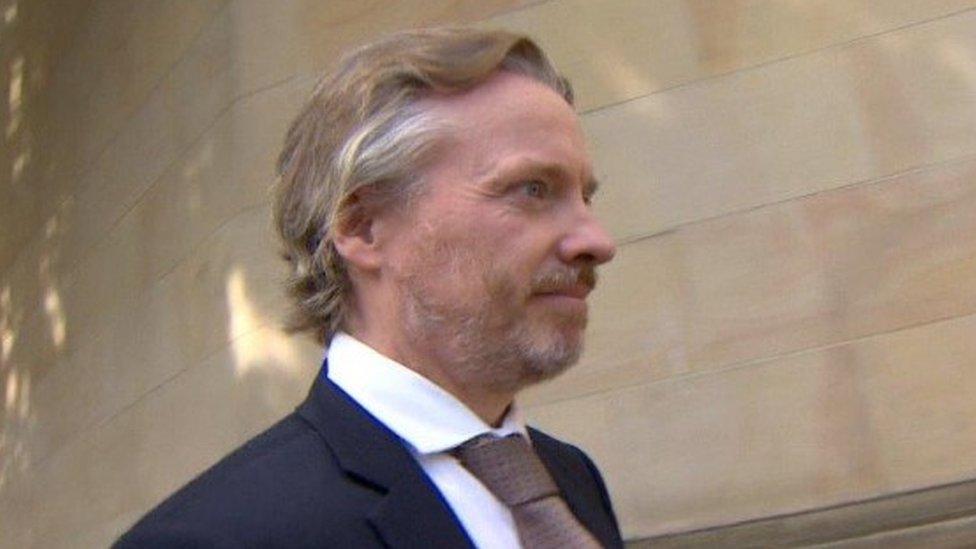Craig Whyte Trial: 'Fraudsters' tried to buy club for £42m
- Published
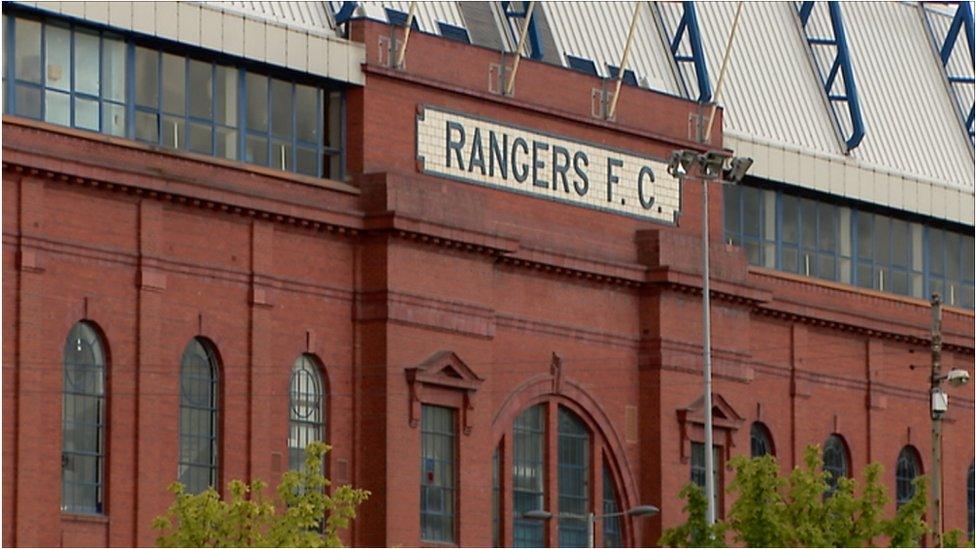
The court heard there were a few offers to buy the club after Sir David Murray announced his intention to sell
Fraudsters tried to buy Rangers before Craig Whyte took over the football club in 2011.
Two individuals managed to get through the initial stage of the buying process by making a 50m euro (£42m) bid using a fake letter from a bank.
The details emerged during a ninth day of evidence at the High Court in Glasgow where Craig Whyte is accused of a fraudulent acquisition of Rangers.
He denies a charge of fraud and another under the Companies Act.
The court heard from chartered accountant Michael McGill, who had been hired by the then Rangers owner Sir David Murray in 2009.
'More serious'
Mr McGill served as a director with the Murray Group and later became a Rangers director.
He explained how in the months after Sir David announced his intention to sell Rangers, there were few offers to buy the Ibrox side and that some of the bids were "more serious than others".
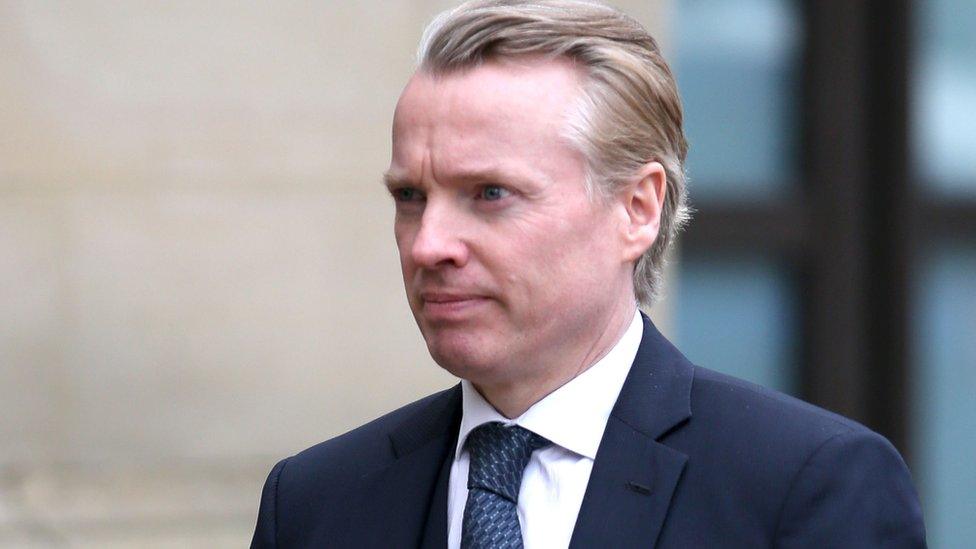
Craig Whyte denies fraudulently trying to acquire Rangers
Among them was an approach by two individuals said to have links to the brother of an un-named English football boss.
They produced a letter from a Belgian bank stating they had 50m euros to invest.
However, one of the pair was found to have the same name as someone banned from being a company director in the UK.
The letter was also discovered to be "fraudulent" and a "forge".
'Organised crime'
Another offer, funded by a Lithuanian bank, was also made.
The court heard that the offer seemed to be from "an institution" that had the "wherewithal" to complete a sale.
But Mr McGill told the High Court that the Murray Group became "extremely uncomfortable" dealing with the Lithuanian bank.
The witness said there had been accusations it was involved in "organised crime and money laundering".
There were also added concerns about any "furore" given publicity surrounding the Lithuanian owners of another Scottish club.

Former Rangers owner Sir David Murray sold the club to Craig Whyte in 2011
At that time Heart of Midlothian were owned by Lithuanian tycoon Vladimir Romanov.
When Craig Whyte later came forward with a proposal to buy the club, Mr McGill met him in October 2010 at a lawyers office in London.
Prosecutor Alex Prentice QC asked Mr McGill if there had later been discussion about the "source of funds" for the bid.
Mr McGill replied: "At all times, Mr Whyte assured us that the funds were coming from his own personal resources."
'Club's future'
Mr McGill said there was also a keenness to know that Craig Whyte would be able to cope with the "peaks and troughs" of the "cash demands" of a football club.
He also acknowledged that Rangers had used the firm Ticketus to obtain "short-term working capital" of up to £6m.
Mr McGill said that in 2011 Rangers had about 40,000 season ticket holders who would pay money into the club.
That income could be used to obtain cash from Ticketus "up front" if the club needed it.
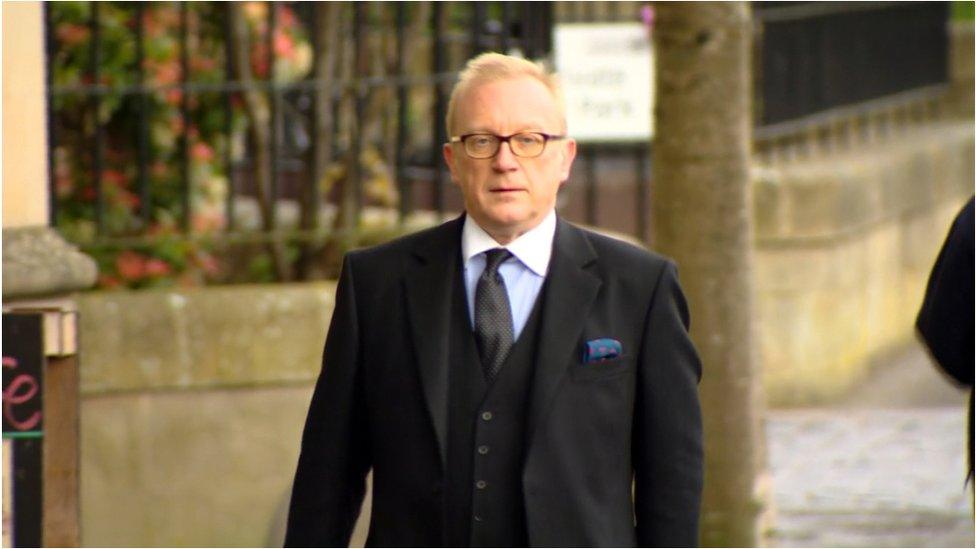
Alex Prentice QC was questioning Michael McGill at the High Court in Glasgow
However, Mr McGill insisted that he would not do "multiple-year deals" with Ticketus as it would be "unpalatable to mortgage the club's future in that manner".
He admitted this had not been shown in the club's accounts - but claimed there had been "no desire to hide" it.
Mr McGill acknowledged that using Ticketus might have been a "sensitive issue" for some supporters.
This was after Leeds United FC, in effect, sold off season tickets before hitting serious financial problems.
Prosecutors allege Mr Whyte pretended to Sir David Murray, and others, that funds were available to make all required payments to acquire a "controlling and majority stake" in the club.
The Crown alleges Mr Whyte had only £4m available from two sources at the time but took out a £24m loan from Ticketus against three years of future season ticket sales.
The court has heard the sale was eventually made to Mr Whyte for £1 but came with obligations to pay an £18m bank debt, a £2.8m "small tax case" bill, £1.7m for stadium repairs, £5m for players and £5m in working capital.
The second charge under the Companies Act centres on the £18m payment between Mr Whyte's Wavetower company and Rangers to clear a bank debt.
The trial before eight men and seven women continues.
- Published3 May 2017

- Published25 April 2017
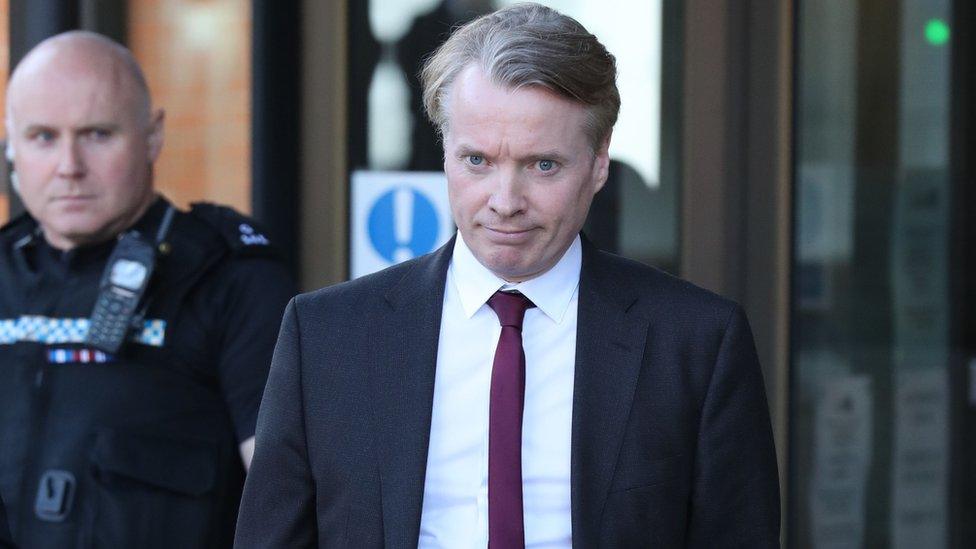
- Published24 April 2017

- Published21 April 2017

- Published20 April 2017
